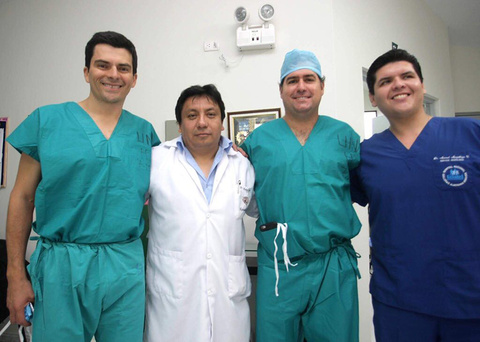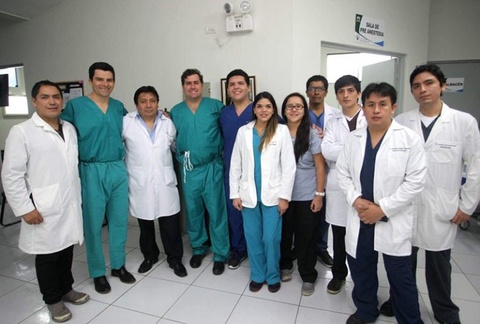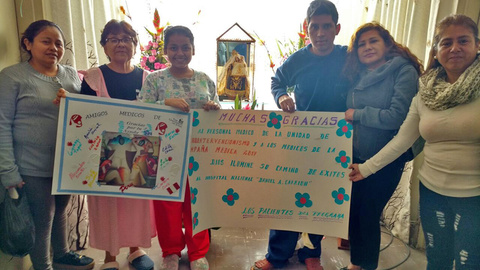Once Edgar Samaniego, MD, starting working at UI Hospitals and Clinics as a neurologist in neurointerventional surgery, he saw the stark contrast in the resources compared with his home country of Ecuador. Here, he saw state-of-the-art Cath Labs, neuroimaging technology, medical equipment, and highly trained specialists—all severely lacking in Ecuador.
So he and Santiago Ortega-Gutiérrez, MD, the director of neurointerventional surgery in neurology, decided to do something about it.

Their outreach trips—so far to Ecuador and Peru—serve two purposes:
- Perform surgeries for underserved people
- Train physicians to perform surgeries and treat stroke
Also making the trip to Ecuador this November from UI Health Care is Enrique Leira, MD, neurologist, and David Hasan, MD, neurosurgeon, who will both be giving lectures to train providers.
Perform surgeries
During the first two days of this visit, Samaniego and Ortega will be in Quito, where they will perform three to four surgeries each day, such as embolizations of aneurysms and arteriovenous malformations.
On their previous trip in July of this year—to Lima, Peru—patients were ready for them when they arrived. There, they treated nine patients and lectured to local providers about the treatment of stroke and neurocritical care.
“Helping people that really don’t have anything—no insurance and no other options—makes your day. If we don’t treat them, they’ll die. It’s very rewarding,” says Samaniego.
Training physicians

Samaniego and others from Iowa also continue to collaborate with the providers in Ecuador and Peru, often on a weekly basis, providing advice on specific cases and how to achieve the best outcomes.
“Teaching other doctors and sharing our experiences—I think that makes us better people. Not only better doctors, but better people,” he says.
Even with less advanced technology and less equipment, physicians in Peru and Ecuador are still treating complex cases. “These doctors, they do a great job. It’s also a two-way learning experience because we also learn from them, how to work with fewer materials, and in some cases different devices than what we use,” he adds.
Provide medical equipment

That is, life-saving devices.
“Without the support of the medical device companies, we wouldn’t be able to do it,” Samaniego says.
Financial support
With the help of David Maxey of the University of Iowa Center for Advancement, Samaniego and Ortega formed the University of Iowa Neurointerventional Surgery Foundation in 2015 to financially support their mission of bringing more advanced neurosurgical care and physician training to under-served countries.
The foundation covers the cost of travel and lodging. Samaniego and Ortega also have unrestricted support of their chairman: George Richerson, MD, PhD. “These trips would be impossible if not for the help and support of Dr. Richerson,” Samaniego says.
Looking ahead
In the future, Samaniego hopes to go on multiple trips each year, and not just to Peru or Ecuador, but other places where they can help.
They also hope to bring some of the physicians from those countries to UI Hospitals and Clinics to do observerships. The foundation would finance travel and lodging, so the visiting providers can observe the UI team working and performing procedures.
Speaking of their last trip to Peru, Samaniego adds, “The families were very thankful. After we left, they made signs thanking us, thanking University of Iowa doctors for coming. It is very rewarding to help patients in Iowa and around the world,” he adds.
